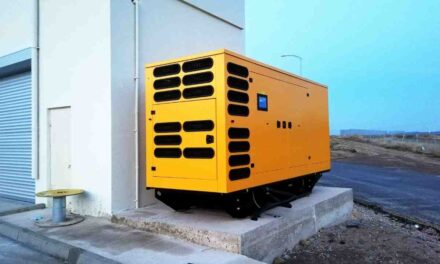
It is no longer news that the cases of power outages are increasing rapidly. And this has made it mandatory for everyone in the United States to get a standby generator for their homes. These days, electricity has become another basic necessity of life. Virtually all the appliances that make our homes comfy, cozy, and homely are powered by electricity. That’s why a power outage is almost unbearable.
And many power failures are caused by natural disasters. The outage could last for days. Now, a lot of people keep asking – how long can a standby generator run continuously? They want to be able to run their generators non-stop for as long as the power outage lingers. We have decided to write this article to answer the question in full.
In addition, we will also answer several other frequently asked questions about running a generator for a long period continuously. So, if the topic sounds interesting to you, keep reading the article to the end.
What Does a Standby Generator Run On?
There are numerous brands and models of standby generators, but they all run on diesel, natural gas, or liquid propane. You may want to know which fuel is the best. The answer is none. The three of them have their pros and cons. For instance, diesel is the costliest fuel, and diesel generators give off the most fumes.
Natural gas is nice because, with it, you won’t need any fuel tank. However, you need to hire a plumber to lay a gas line from your main gas supply to the generator. This will cost you some money. In addition, whenever there’s a natural disaster, the gas supply will be shut down for safety reasons. So, if there’s a power outage caused by a natural disaster, you may not be able to fuel your generator if it runs on natural gas.
How Long Can a Standby Generator Run Continuously?
According to Generac, Champion, Cummins, and other leading manufacturers of standby generators, their generators can run for more than 500 hours continuously. Even though the generators are built to run for several days, this is not possible in reality. There are a few circumstances that will prevent you from running your generators continuously for up to 500 hours.
Standby generators that run on either diesel or liquid propane do not have a tank that can accommodate the quantity of fuel that is enough to run the generators for up to 500 hours. And once the generator runs out of fuel, it will shut down. You’ll have to refuel it before restarting it.
The question is, what about the generators that run on natural gas? Yes, those generators don’t need a fuel tank because they are linked directly to your main gas supply. However, there’s another issue with gas-powered generators.
The leading cause of power outages is a natural disaster, and when a disaster occurs, the natural gas supply will be shut down to prevent fire hazards. So, you may not be able to use your generator for 500 hours, even if it runs on natural gas.
Another reason why you can’t run your generator for more than 72 hours is that you need to allow your generator to rest after running for a certain number of hours. If not, you’ll be shortening the lifespan of your generator.
Bottom line – standby generators can run for more than 500 hours theoretically, but in reality, that can’t happen.
Can You Run a Generator 24 Hours a Day?
Yes, you can run a generator for 24 hours a day for only about 2 – 3 days. After the third day, you must allow it to rest for some hours. If you keep running your generator for days without allowing it to rest, the rate of wear and tear may be high. And as such, you’ll reduce the lifespan of the generator. So, we will advise you to allow your generator to rest after running it for about 72 straight hours.
Can Generac Generators Run Continuously?
Yes, Generac generators are among the strongest, most rugged, and most durable brands of generators. In other words, Generac generators are workhorses that will handle whatever you throw their way. You can run your Generac generator continuously for about 72 hours before you allow it to rest for a couple of hours. You can start it after 2 hours of rest.
However, if you really want to enjoy your Generac generator, don’t skip its service. Follow all the instructions given by the manufacturer.
Is It Okay to Leave a Generator Running All Night?
Generally, there’s nothing wrong with leaving your generator to run all night if there’s a power outage. However, you have to consider how noisy it is. Remember, your neighborhood will get very quiet at night, and the noise of your generator will seem louder. Make sure it does not disturb your neighbors.
In addition, you need to follow the requirements and guidelines set for using a generator. In some communities, running a generator is prohibited at night because of its noise. Take the time to find out. You don’t want to get fined and get your generator confiscated.
How Much Fuel Does a Standby Generator Use?
How much fuel your generator consumes will depend on the following factors.
- The condition of the generator – When a generator is not in perfect condition, it tends to consume more fuel than it should. This is why you should take maintenance checks seriously.
- The size of the generator – Generally, bigger generators tend to consume much more fuel than smaller generators because they have bigger engines.
- The load on the generator – The heavier the load you heap on your generator, the faster it will consume your fuel. In other words, at 50% load capacity, your generator will consume more fuel than when it runs on 25% load capacity.
- The brand of the generator – Some brands are known for fuel conservation. They consume relatively less fuel than others. Brands like Generac, Champion, and Cummins are known to consume less fuel than other brands of generators.
Final Thoughts
To remind you of the main points of this article, standby generators are actually strong enough to work continuously for up to 500 hours or more, but they don’t get to work for such a long period because of the circumstances discussed above.
Finally, before you install a standby generator, find out the rules and regulations for using a standby generator in your community first. Make sure you comply with all the rules. Non-compliance could lead to paying a heavy fine, or you may lose your generator.





